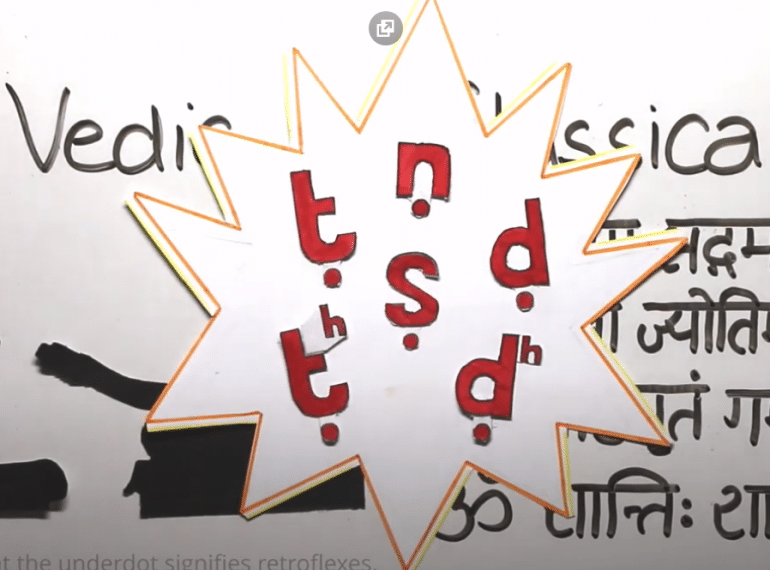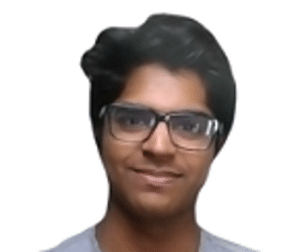Vineeth wins competition with his video on the amazing, complex story of retroflexes – the sounds that bind together the Indian sub-continent

Sixth-former Vineeth Rajan’s presentation on Indian linguistics has been announced as the winner in a national video essay competition run by the Cambridge Language Collective.
 The collective – a collaborative blog written and produced by Cambridge University linguists – awarded Vineeth joint first prize in the senior individual category for his closely argued seven-minute film entitled Retroflexes: The linguistics of South Asia.
The collective – a collaborative blog written and produced by Cambridge University linguists – awarded Vineeth joint first prize in the senior individual category for his closely argued seven-minute film entitled Retroflexes: The linguistics of South Asia.
Danylo Gutsulyak, of Year 10, was awarded joint-second place in the junior individual category for his entry entitled Das Lagerfeuer, while two other QE boys – Year 10’s Darren Lee and Tejas Bansal, of Year 9 – were also shortlisted.
QE’s Head of Languages, Nora Schlatte, said: “My congratulations go to all our successful entrants and especially to Vineeth on his submission, which was not only impeccably researched, but also very attractively presented.”
Vineeth, of Year 12, put the video together over the first half of the Easter holidays, articulating his argument throughout with his hand-drawn illustrations, and making extensive use of time-lapse photography.
He described it as a “deep dive” into the history, phonology and sociolinguistics of retroflexes, which are the distinctive sounds that are formed by curling the tongue back behind the upper jaw’s alveolar ridge. It is, he says, a topic that has long fascinated him.
 Vineeth explored the various academic theories about the origins of these sounds and how they developed. He looked at why retroflexes are common across hundreds of different languages throughout the Indian sub-continent, yet are relatively rare in other parts of the world.
Vineeth explored the various academic theories about the origins of these sounds and how they developed. He looked at why retroflexes are common across hundreds of different languages throughout the Indian sub-continent, yet are relatively rare in other parts of the world.
He acknowledged that anyone seeking to track the origin and development of sounds faced a harder challenge than linguists tracking the written language, pointing out that all the theories he was explaining about retroflexes were necessarily speculative: “Although words can be securely etymologised to one source over another, phonological influence is often harder to trace back.”
After setting out the history, he took a look at the present-day situation, mentioning the “characteristic Indian English sound that Apu [from TV’s The Simpsons] is perhaps notorious for today” and how people have adjusted the way they speak to “try and elevate themselves from this lowly regarded pronunciation”.
 Vineesh concluded: “This is what is amazing about retroflexes: the profound impact that they have on the complex sociology of south Asia, spreading across the tongues of people from a diversity of cultures, religions and backgrounds in a way that nothing else possibly could….Retroflexes seem to bind all of south Asia together. Despite making us seem homogenous and often risible to the western world, [their] history can give us a glimpse into the complex interactions between diverse cultures thousands of years ago.”
Vineesh concluded: “This is what is amazing about retroflexes: the profound impact that they have on the complex sociology of south Asia, spreading across the tongues of people from a diversity of cultures, religions and backgrounds in a way that nothing else possibly could….Retroflexes seem to bind all of south Asia together. Despite making us seem homogenous and often risible to the western world, [their] history can give us a glimpse into the complex interactions between diverse cultures thousands of years ago.”
Vineeth, who aspires to be a biochemist and geneticist, published the video on his own YouTube channel, Genespeak, which focuses on both biochemistry and linguistics.
